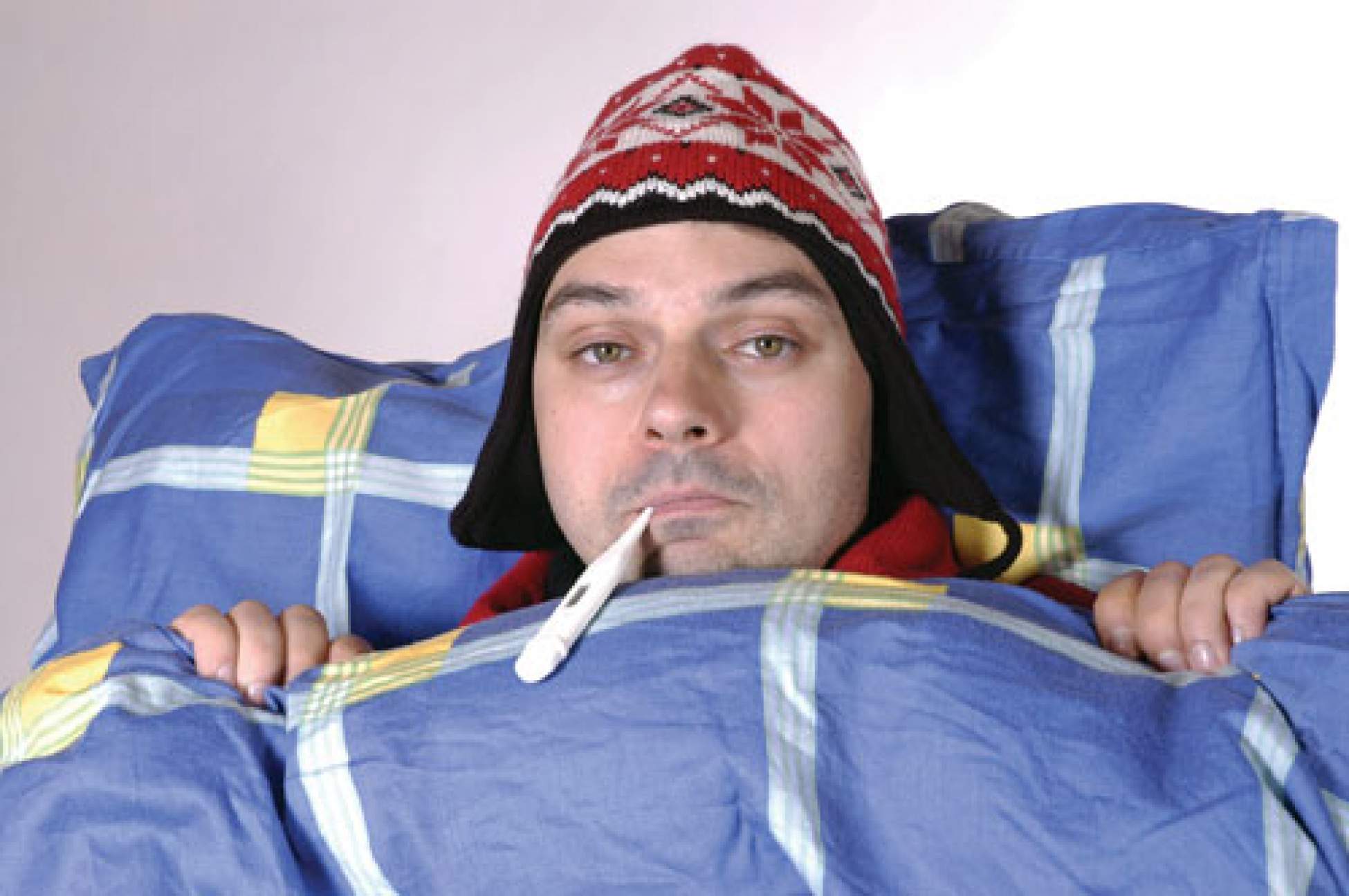"Man, it's great to be back home, but I'm still running to the can, my temperature is 39.4 degrees, and what's that funny rash on my butt?"
Yes, it's true. Sometimes we return home with more than memories, photographs and priceless souvenirs. But, with a little bit of knowledge, and a knowledgeable doctor, your less-welcome travel mementos can be diagnosed and treated.
Chills
Let's start with the fever - it is the most important, and potentially life-threatening symptom you might have on your return. Fever in a returning traveller is malaria until proven otherwise. If both you and your doctor can remember that, you should stay out of trouble. Malaria may be accompanied by almost any symptom, but headache, chills, and feeling hot and cold are the most common. These symptoms may not be that much different from other infections you may have, such as dengue, typhoid fever or hepatitis.
Fever in a returning traveller is malaria until proven otherwise.
If, within 30 days of your return, you have a fever, you need to have a malaria smear done… STAT, like they say on TV. Should that test be negative, and no other diagnosis is obvious, that smear should be repeated every 12-24 hours as long as your fever persists. Other tests, like your blood count, a blood culture, liver function tests and a chest x-ray might be helpful.
Malaria is a treatable infection, as long as it is diagnosed promptly and treated properly. Typhoid is treated with antibiotics, and dengue… well you'll just have to ride that one out! Quite often a diagnosis is not made, and the patient gets all better anyway. That's okay too.
Spills
Now that we've cured your malaria, let's fix up your bowels. Gastrointestinal complaints, ranging from frequent, severe diarrhea to gas, bloating and rumbling, are the most common post-travel problems. Acute bacterial infections such as salmonella, campylobacter and shigella (from contaminated food or water sources) should be checked for by means of a stool culture. Parasites, such as giardia, cryptospordia and various amoebas can also be checked for. The treatment will depend on whether, and what, you find. Many travellers who experience Montezuma's (and others') Revenge while away do not return to normal immediately, from an intestinal point of view. This is referred to as a post-infectious irritable bowel syndrome - time, patience and dietary modifications are the best approach.
Seeing spots
Lots of travellers come home itching and scratching. There are a few distinct rashes we see in travellers. Cutaneous larva migrans is an infection with a dog hookworm that produced a serpiginous, or winding rash, usually on the foot. We get it from walking barefoot, or lying in sand that has been contaminated by dog feces.
Myiasis, or a botfly infestation, is my favourite. This comes from a fly, most often in Belize or Costa Rica, that lays its egg on your skin. It turns into what feels and looks like a boil, though there is the sensation that something is moving inside—which there is! This little maggot is best coaxed out of your skin by covering the tiny opening with some Vaseline, or raw bacon, and then grabbing the little critter with your tweezers as it comes up for air. Sometimes just squeezing will do the trick.
There are many other exotic skin rashes, but the most common are simple bites. Mosquito, sandfly, bedbug? I can't always tell. These clear up with time. For a more graphic look at these rashes, go to www.drwisetravel.com/skin.html.
There may be some things worth checking for even if you feel great when you get back. If you spent time swimming in Lake Malawi or other fresh water in Africa, a blood test for schistosomiasis is worthwile. HIV testing is crucial if there is any chance you might have been exposed through unsafe sex or unsterile medical care. For longer-term travellers, a repeat of the TB test that you may have had prior to travel is important to determine if you might have become infected (not necessarily affected) with tuberculosis.
Perhaps you're just feeling tired when you get home. It might be due to jet lag, but remember that "reverse" culture shock can kick in on your return. All of those non-infectious things that you loved about travelling—the smells, the food, the slower pace, the freedom, the culture—have been taken away, and now you have to readjust to your new surroundings. This too shall pass.
Mark Wise is a family doctor in Toronto, specializing in travel and tropical medicine. He is the director of The Travel Clinic and acts as medical advisor to numerous NGOs and is on the board of Canadian Feed the Children. He has travelled to most of the places where you might consider volunteering.
Add this article to your reading list




